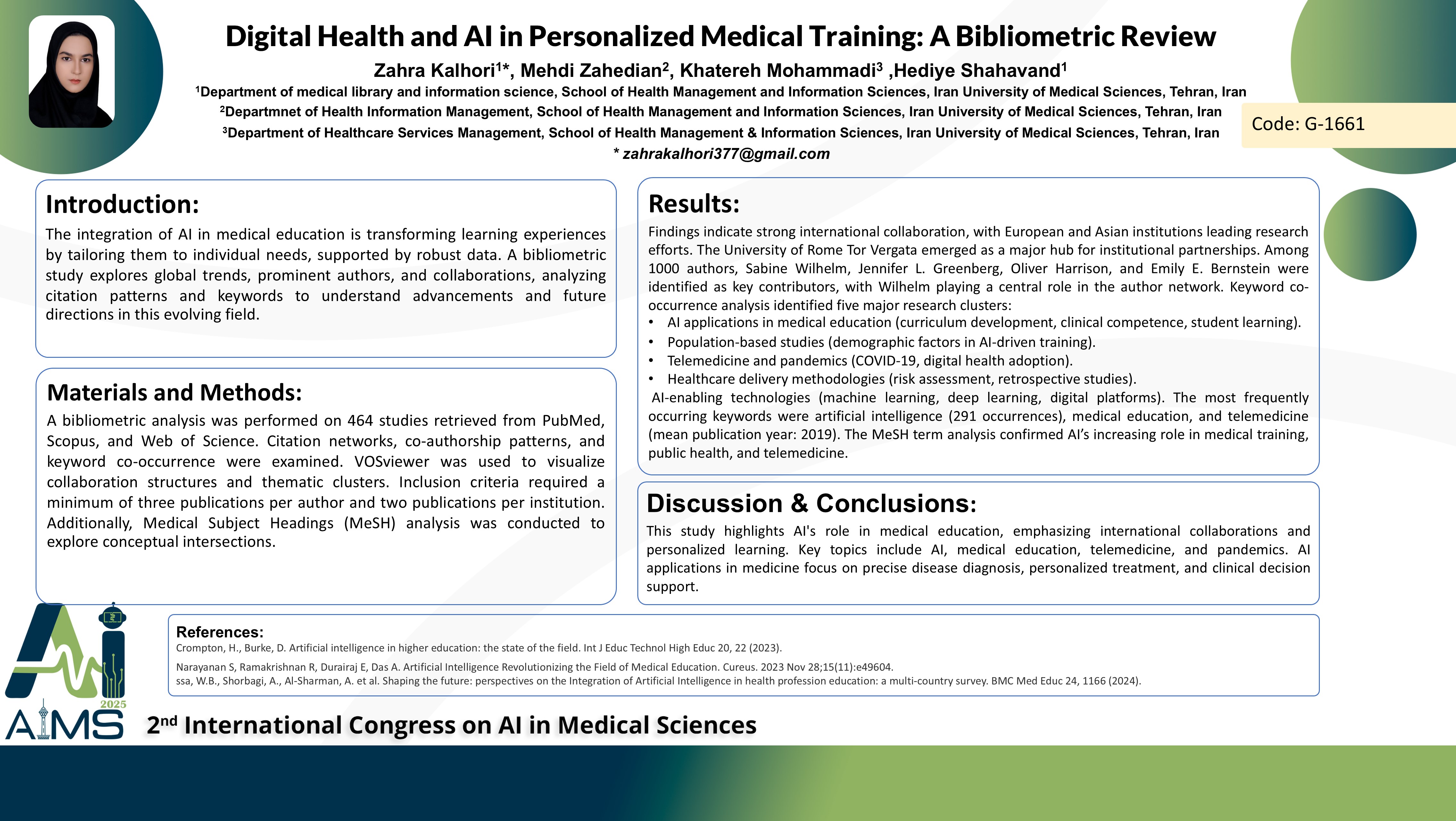Digital Health and AI in Personalized Medical Training: A Bibliometric Review
Code: G-1661
Authors: Zahra Kalhori * ℗, Mehdi Zahedian, Khatereh Mohammadi, Hediye Shahavand
Schedule: Not Scheduled!
Tag: Clinical Decision Support System
Download: Download Poster
Abstract:
Abstract
Background and aims: The integration of AI in medical education is transforming learning experiences by tailoring them to individual needs, supported by robust data. A bibliometric study explores global trends, prominent authors, and collaborations, analyzing citation patterns and keywords to understand advancements and future directions in this evolving field. Method: A bibliometric analysis was performed on 464 studies retrieved from PubMed, Scopus, and Web of Science. Citation networks, co-authorship patterns, and keyword co-occurrence were examined. VOSviewer was used to visualize collaboration structures and thematic clusters. Inclusion criteria required a minimum of three publications per author and two publications per institution. Additionally, Medical Subject Headings (MeSH) analysis was conducted to explore conceptual intersections. Results: Findings indicate strong international collaboration, with European and Asian institutions leading research efforts. The University of Rome Tor Vergata emerged as a major hub for institutional partnerships. Among 1000 authors, Sabine Wilhelm, Jennifer L. Greenberg, Oliver Harrison, and Emily E. Bernstein were identified as key contributors, with Wilhelm playing a central role in the author network. Keyword co-occurrence analysis identified five major research clusters: • AI applications in medical education (curriculum development, clinical competence, student learning). • Population-based studies (demographic factors in AI-driven training). • Telemedicine and pandemics (COVID-19, digital health adoption). • Healthcare delivery methodologies (risk assessment, retrospective studies). AI-enabling technologies (machine learning, deep learning, digital platforms). The most frequently occurring keywords were artificial intelligence (291 occurrences), medical education, and telemedicine (mean publication year: 2019). The MeSH term analysis confirmed AI’s increasing role in medical training, public health, and telemedicine. Conclusion:This study highlights AI's role in medical education, emphasizing international collaborations and personalized learning. Key topics include AI, medical education, telemedicine, and pandemics. AI applications in medicine focus on precise disease diagnosis, personalized treatment, and clinical decision support.
Keywords
Artificial Intelligence, Digital Health, Personalized Learning
